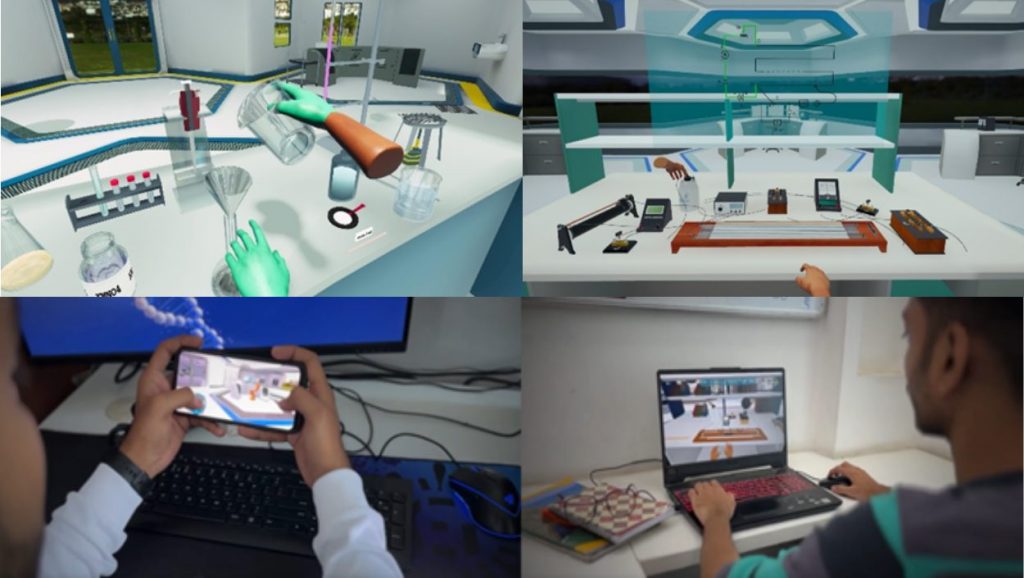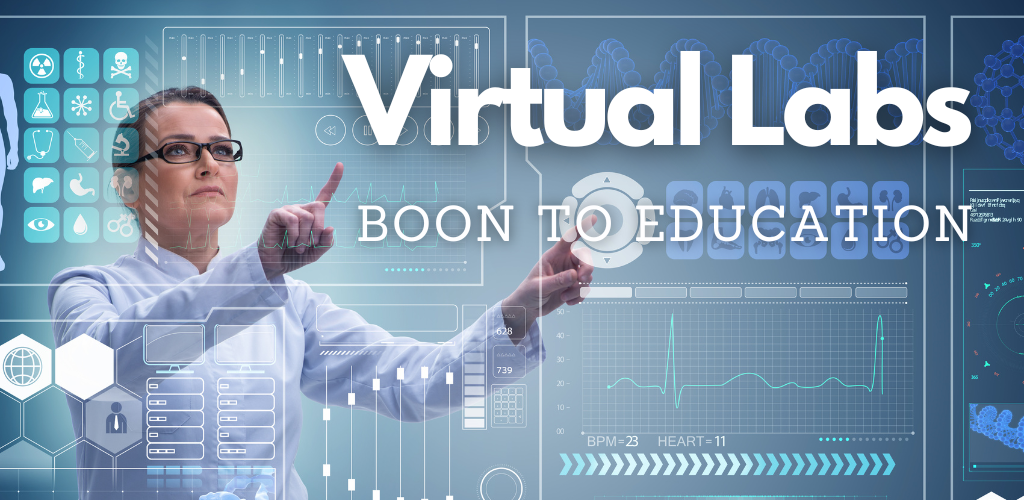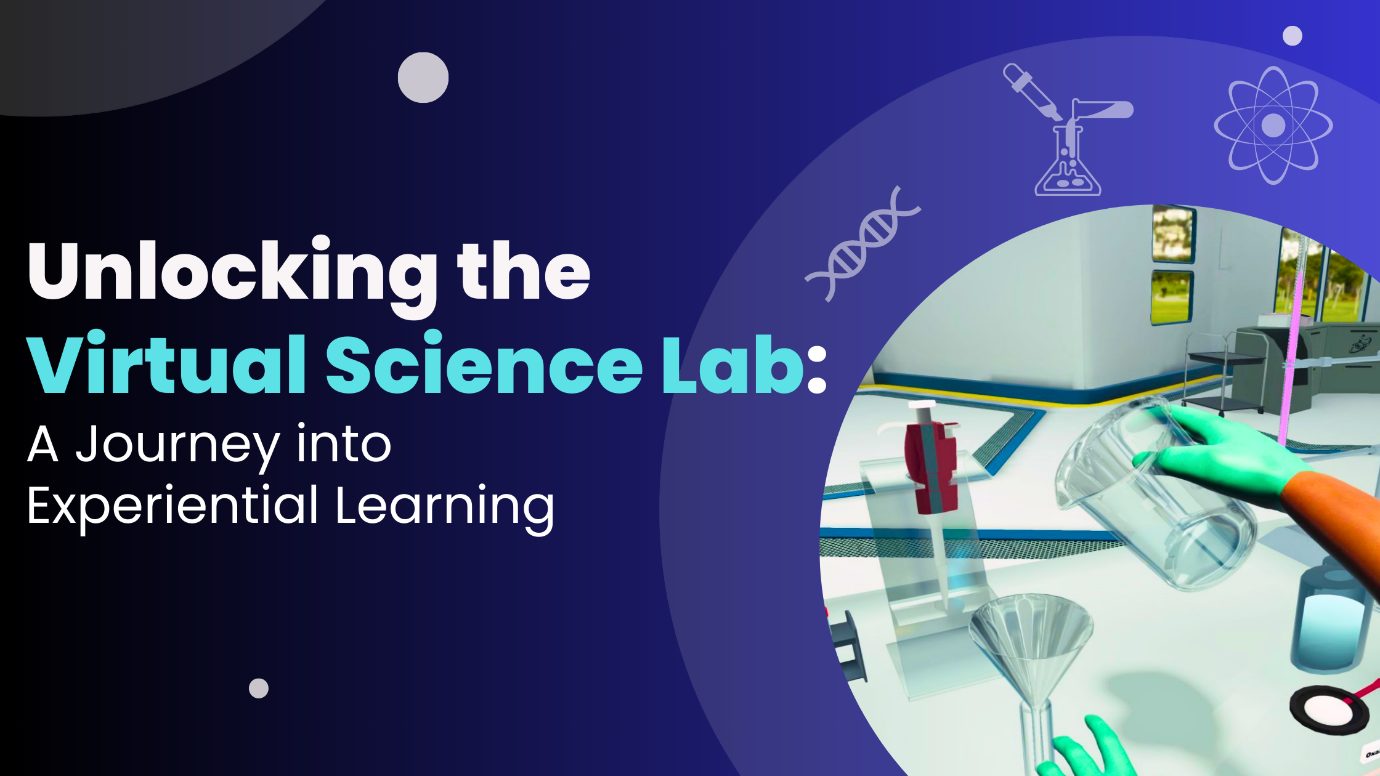Dubai has always been at the forefront of innovation, blending technology with education to create learning environments that prepare students for the future. One of the most transformative changes in recent years is the integration of virtual labs into science education. These digital laboratories are redefining the way students learn, experiment, and engage with scientific concepts.
Virtual labs offer an immersive experience where students can simulate experiments in chemistry, physics, biology, and other scientific disciplines without the constraints of physical laboratories. This technology ensures that students gain practical skills while eliminating the limitations imposed by safety concerns, costs, and lab availability.
Enhancing Student Engagement and Curiosity
One of the key benefits of virtual labs is their ability to engage students in ways traditional classrooms cannot. Interactive simulations allow students to experiment with variables and witness real-time results, which sparks curiosity and encourages a deeper understanding of scientific principles. In Dubai, educators have observed that students are more likely to retain knowledge when they actively participate in virtual experiments compared to merely reading textbooks or attending lectures.
Virtual labs also cater to diverse learning styles. Visual learners can benefit from detailed graphical simulations, while kinesthetic learners can interact with experiments by controlling parameters and observing outcomes. This personalized approach ensures that every student finds a method of learning that resonates with them.
Overcoming Traditional Laboratory Limitations
Traditional science labs, while invaluable, often face limitations. They require expensive equipment, chemical reagents, and significant time to set up and clean. Safety is another major concern, especially in schools where younger students are involved. Virtual labs address these challenges by providing a risk-free environment where students can repeat experiments as many times as needed without fear of accidents or damage.
Moreover, virtual labs are accessible beyond school hours, allowing students to practice and explore independently. This flexibility is particularly valuable in Dubai, where education authorities emphasize self-directed learning and continuous skill development. Students no longer have to wait for scheduled lab sessions to experiment they can explore science anytime, anywhere.

Promoting Collaboration and Problem-Solving
Integration of virtual labs also encourages collaboration among students. Many platforms offer features where multiple users can work on a single experiment together, even if they are not in the same location. This fosters teamwork, communication, and problem-solving skills, which are essential competencies in today’s workforce.
In Dubai, schools are leveraging these collaborative opportunities to create group projects that simulate real-world scientific research. Students discuss hypotheses, design experiments, and analyze results collectively, which mirrors the professional research environment and prepares them for future careers in STEM fields.
Bridging the Gap Between Theory and Practice
One of the biggest challenges in science education is bridging the gap between theoretical concepts and practical application. Students often struggle to connect textbook knowledge with real-world scenarios. Virtual labs address this by allowing students to apply theoretical knowledge in a controlled, simulated environment.
For example, a student studying chemical reactions can manipulate variables like temperature and concentration in a virtual chemistry lab, observing outcomes that directly reinforce the concepts learned in class. This hands-on experience strengthens comprehension, critical thinking, and the ability to apply knowledge in practical situations.
Supporting Teachers and Enhancing Curriculum
Virtual labs are not only beneficial for students they also support teachers by providing innovative tools to enhance the curriculum. Educators in Dubai can design experiments that align with learning objectives, track student progress, and provide instant feedback. This data-driven approach allows teachers to identify knowledge gaps and tailor lessons to meet individual student needs.
Additionally, virtual labs reduce the preparation burden on teachers. Setting up traditional labs requires time, resources, and supervision, whereas virtual labs simplify the process while maintaining educational quality. Teachers can focus more on guiding students, fostering creativity, and encouraging scientific inquiry.
Encouraging STEM Career Readiness
Dubai is committed to cultivating a generation of students ready to excel in STEM careers. Virtual labs play a critical role in this mission by exposing students to advanced scientific techniques, research methodologies, and problem-solving approaches from an early age.
Through consistent interaction with virtual labs, students gain confidence in handling scientific tools and concepts. They develop analytical thinking, attention to detail, and technical skills that are highly valued in higher education and professional environments. By integrating virtual labs, Dubai ensures that its students are not only academically proficient but also career-ready in an increasingly technology-driven world.
Ensuring Inclusivity and Accessibility
Another significant advantage of virtual labs is their inclusivity. Students who may have physical limitations or who face geographical constraints can still access high-quality science education. Virtual labs break down barriers, providing equal opportunities for all learners to explore and experiment.
In Dubai, this inclusivity aligns with the city’s vision of creating a modern, equitable education system. Schools are increasingly incorporating virtual labs into mainstream curricula, ensuring that every student, regardless of background or circumstance, can benefit from cutting-edge educational technology.

Preparing for a Technological Future
The integration of virtual labs is not just about improving current education it is about preparing students for a future dominated by technology. In fields such as biotechnology, environmental science, engineering, and data analysis, the ability to simulate experiments, model outcomes, and analyze data digitally is becoming essential.
By introducing virtual labs early, Dubai equips students with the digital literacy and technological competence required in tomorrow’s workforce. Students learn not only the principles of science but also how to leverage technology to innovate, solve complex problems, and make informed decisions.
Challenges and Considerations
While virtual labs offer numerous benefits, successful integration requires careful planning. Schools must invest in reliable technology infrastructure, provide training for teachers, and ensure that simulations accurately reflect real-world scenarios.
Furthermore, balance is essential. Virtual labs complement but do not entirely replace traditional hands-on experiments. Physical laboratories provide sensory experiences and skills that virtual platforms cannot fully replicate. The ideal approach in Dubai involves a hybrid model where students benefit from both digital and physical experimentation.
The Future of Science Education in Dubai
The integration of virtual labs represents a transformative step for science education in Dubai. As technology continues to evolve, these platforms will become more sophisticated, offering enhanced simulations, AI-driven analytics, and immersive virtual reality experiences.
Dubai’s focus on innovation ensures that students are not only learning but thriving in an environment that encourages curiosity, creativity, and critical thinking. By embracing virtual labs, the city is setting a global benchmark for modern, technology-driven science education.
Conclusion
Virtual labs are redefining science education in Dubai by making learning more interactive, inclusive, and aligned with the needs of the 21st century. They empower students to explore scientific concepts safely, foster collaboration, bridge theory and practice, and prepare learners for future STEM careers.
As Dubai continues to integrate these tools across schools, students gain the confidence, skills, and inspiration to become innovators and leaders in science and technology. The fusion of virtual labs with traditional education represents a bold and positive step toward a future where learning is limitless, engaging, and transformative.
Do follow Gulf Magazine on Instagram.
Also Read – The Impact of Gamification on Learning in Dubai Schools: Boost Engagement and Results



